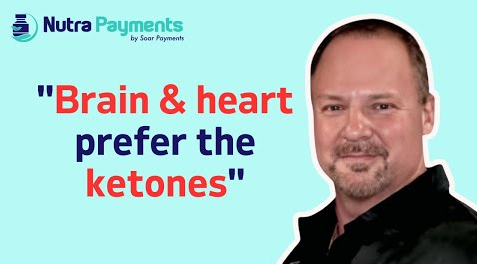How To Eat For Brain Health
Remember how mom used to tell us to eat fish and other foods because it was, “brain food?” Well, turns out there’s something to that. Most people begin eating healthy for an aesthetically pleasing physique and optimizing their fitness. Turns out we can actually eat-and live-in a way that supports optimal brain fitness as well as good old fashioned fitness.
The reality is that our body operates on cells to performance level. This is incredibly exciting because it means that we can make simple lifestyle shifts to optimize our own cognitive fitness for a healthier brain, better quality of life, and longevity!
Lower Dietary Inflammation Is Key
The first step to make with your nutrition is an addition by subtraction approach. That’s right-before we focus on any single nutrient or factor that drives brain health, we need to focus on optimizing the entire system by removing total body chronic inflammation.
Inflammation is the body’s response to injury and insults to the body- a vital piece of the immune system network’s response to infections and injuries. This is the body’s way of sending out a signal flare to the immune system to heal and repair damaged tissues, as well as fight off foreign invaders, such as viruses and bacteria. Inflammation is a good thing-we need inflammation. At the same time, chronic inflammation should be avoided at all costs and is a common denominator across all types of dis-ease. This occurs when a person perpetually exposes themselves to insults in the form of poor diet choices, sleep deprivation, stress, and more.
So what can we do about this, nutritionally-speaking? Well for one, avoid pro-inflammatory foods-foods that will trigger an inflammatory response in the body. These include American wheat & gluten, the pro-inflammatory grains, artificial sweeteners & colors, refined sugars, and polyunsaturated fatty acids (industrial seed oils like soy, canola, etc.) for the most part.
See, systemic inflammation extends to the brain. Quite simply by avoiding the worst culprits, we can quiet the inflammatory levels in the brain so that your brain can thrive!
In With The New
Now that that’s out of the way, let’s focus on what we put in now: The goal is to focus on whole, solid, nutrient-dense food while mitigating processed junk food. Think of an ancestral diet, a less-restrictive Paleo, or a modified Mediterranean diet when it comes to where you pull your foods from. For example, SEE OUR FREE GROCERY LIST HERE.
Nutrient-dense foods rich in antioxidants (including polyphenols) help to combat a type of stress in the body, known as free radicals. This will tie into our next point about lowering inflammation, but in short, less inflammation means more oxygen to your brain. Furthermore, these polyphenols also promote BDNF (brain-derived neurotrophic factor)-the fertilizer of the brain!
How to do this? Simply eat your veggies! Coffee, green tea, red cabbage, leafy greens, blueberries, and pomegranates all provide plenty of brain-boosting ammunition!
Get That Fat
Another factor for brain health is having an optimal intake of dietary fat. This means getting in requisite amounts of both saturated fats, as well as optimizing your omega 3 to 6 ratio.
Let’s start with omega 3s and 6s. In short, these fatty acids we get through our nutrition play a vital role in regulating many aspects of our health, including the attic!
Now Omega 6 type fatty acids to help with hormone production, muscle growth, and brain health-the thing is Americans tend to get more than their fill without making any diet alterations.
Omega 3’s are excellent for cell health, hormone regulation, decreasing that pesky inflammation, heart health, blood sugar balance, and overall optimal expression of your genetics. Additionally, they help optimize nervous system function while promoting brain structure growth (neurogenesis)-talk about brain food!
- An omega 6 to omega 3 ratio of 4:1 is ideal– that’s 4 omega 6s for every 1 omega 3 for the majority of folks.
- Some scientists even promote a ratio of 1:1 omega 3 to 6 or higher!
- The typical American eats a ratio of roughly 12:1 to 25:1 omega 6 to omega 3 which, as you guessed, isn’t great. This is largely due to the industrial seed oil consumption and poor food quality we mentioned earlier.
How exactly do we fish for omega 3s? Well, fish for one...fish such as wild-caught salmon and wild-caught sardines can be great for driving up omega 3s, as can supplementing with a pharmaceutical-grade omega 3 fish oil (mitigating heavy metals and rancidity). Grass-fed beef, algae oils, walnuts, flaxseed oils, cauliflower, brussels sprouts, and more are all simple add-ins.
Now for saturated fat-saturated fat keeps your brain insulated. This is important because your brain is about 60% fat, 25% of which is cholesterol. This is why low-fat diets are such a bad idea and cause brain fog.
Brain cells send communication signals along pathways known as myelin-picture something like insulated wire-that insulation on the outside is made up of cholesterol-based fat. Maintaining healthy myelin sheaths (the insulation) helps to keep your brain in tip-top shape, communicating effectively for cognitive function, health, and athletic performance.
You can find quality saturated fat in pasteurized eggs, grass-fed butter, grass-fed beef, grass-fed lamb, and low sugar dark chocolate.
The Ketone Connection
Another surefire way to boost your brainpower and go from V6 to V8 is to become metabolically flexible and begin producing ketones. This means fat-adapting your metabolism into some state of nutritional ketosis.
You see, having a fat-adapted metabolism that is metabolically flexible means you can run off of both fat (on your body and via diet), as well as glycogen (from carbs). Your brain needs this state in order to function ideally.
The reality is that a metabolism fueled primarily by ketones is in line with what our genome was meant to run off of. In research, this has been demonstrated to come with less brain inflammation, new neurological & brain growth, and a more robust supply of energy!
In order to do this, consider adopting some variation of a ketogenic and/or intermittent fasting program, as well as introducing exogenously produced ketones (ketones produced from outside your body), such as MCTs and/or exogenous ketone supplements.
This article is just the beginning-try these simple steps on your path towards building a better brain!

 ACCOUNT
ACCOUNT
 CART
CART





